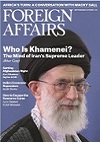When Nitish Kumar became chief minister of the dirt-poor Indian state of Bihar in 2005, kidnapping was said to be the leading industry in the capital city of Patna. People searching for stolen cars were advised to check the driveway of a leading politician, who reportedly commandeered vehicles for “election duty.” Although known for his soft-spoken manner, Kumar cracked down hard. He straightened out the crooked police, ordering them to move aggressively against all criminals, from the daylight robbers to the corrupt high officials. He set up a new fast-track court to speed the miscreants to jail. As Biharis gained the courage to go out on the street, even after dark, Kumar set about energizing a landlocked economy with few outlets for manufactured exports. He focused on improving the yields of Bihar’s fertile soil and ushered in a construction boom. Within a few years, a state once described by the writer V. S. Naipaul as “the place where civilization ends” had built one of the fastest-growing state economies in India. And Kumar was recognized as a leader in the new generation of dynamic chief ministers who are remaking the economic map and future of India.
This generation includes the socialite turned statesman Naveen Patnaik in Orissa, the spellbinding orator Narendra Modi in Gujarat, the self-effacing Raman Singh in Chhattisgarh, and the quiet personalities of Sheila Dikshit in Delhi and Shivraj Singh Chauhan in Madhya Pradesh. As a result of their economic successes, these leaders have each won consecutive reelection bids; India now has six chief ministers who have returned to office for at least three terms in a row, a feat unheard of in a generation. Kumar and Patnaik represent ambitious regional parties that are ready to compete with the country’s two dominant political forces: the ruling Indian National Congress and the opposition Bharatiya Janata Party, or BJP. But the best known among these chief ministers is Modi, who now looks poised to run as the prime ministerial candidate of the BJP in the next national elections, set for May 2014.
This article was originally published by Foreign Affairs. You can read the rest of the article here.
You can read exclusive content from Gateway House: Indian Council on Global Relations, here.
Copyright © 2013 by the Council on Foreign Relations, Inc.


